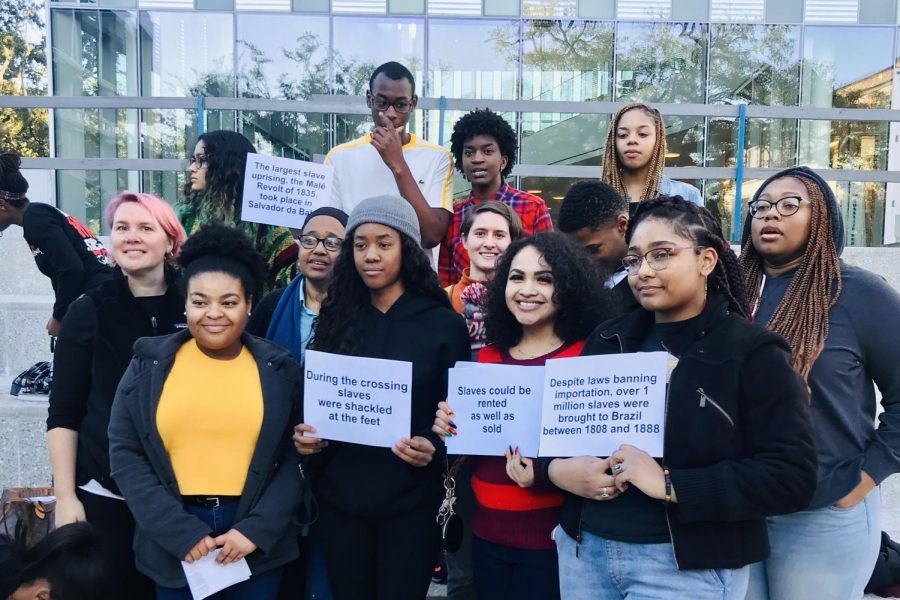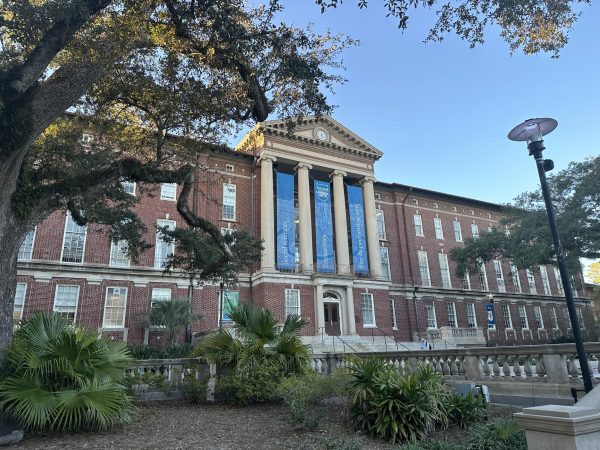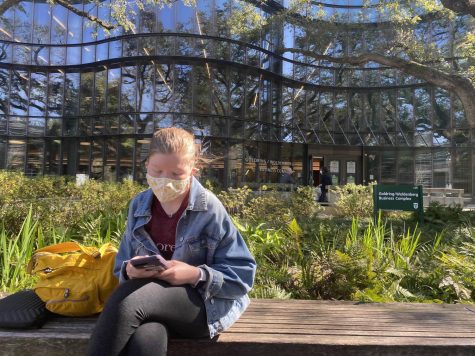Tulane, Xavier students read poem honoring Black History Month
February 13, 2020
On Feb. 7 a circle of 40 Tulane University and Xavier University students and professors recited this poem in its original Portuguese form as well as in English translation. It was the third annual recitation of “Navio Negreiro” during Black History month on Tulane’s campus.
“Yesterday full liberty,
Will for power…
Today. . . the peek of malice
They are not even free to die. . .
The same chain binds them
-Lugubrious iron snake-
In the threads of slavery.”
These lines are excerpted from the 1868 poem “Navio Negreiro” or “The Slave Ship” by Brazilian poet Antonio de Castro Alves. Alves details the harrowing tale of Africans uprooted from their homeland and treated like animals on slave ships that brought them to their masters in Latin America.
The program began with an address by Tulane Ph.D. student Carolina Timóteo de Oliveira on the history of slave trade in Latin America and the tortuous journey that brought enslaved people to their overseas destination. Timóteo de Oliveira noted that the enslaved people were “chained by their feet and many of them would starve themselves to death or throw themselves into the ocean.”

Following Timóteo de Oliveira’s speech came the main event, the reading of “Navio Negreiro.” A microphone passed from person to person as alternating stanzas of the poem were recited in English and Portuguese. Afterward, participants held signs with facts about the Latin American slave trade, including one reading, “Brazil was the last country in the Americas to abolish slavery.”
The program concluded with the sharing of cocadas, a traditional Latin American coconut and sugar dessert, baked by the organizing professor, Megwen Loveless.
Loveless, the director of the Portuguese Language Program at Tulane, was inspired to organize this event with Roseanne Adderly, a Tulane professor who specializes in African-American History, in order to commemorate the legacy of enslaved people in Latin America.
Loveless had heard of a marathon reading of Luís Vaz de Camões, Portugal’s greatest language poet, and wanted to create a similar reading experience at Tulane. She also saw the importance of recognizing that there were roughly 400,000 enslaved people in the United States in comparison with the over 1 million imported to Brazil between 1808 and 1888.
“It’s very important to think about the legacy of the slaves in the rest of Latin America as well,” Loveless said.






















Leave a Comment